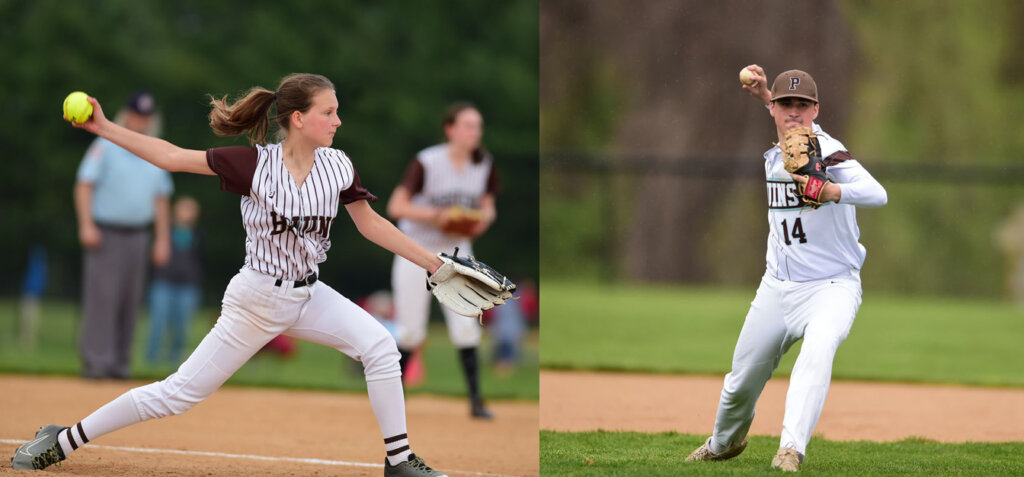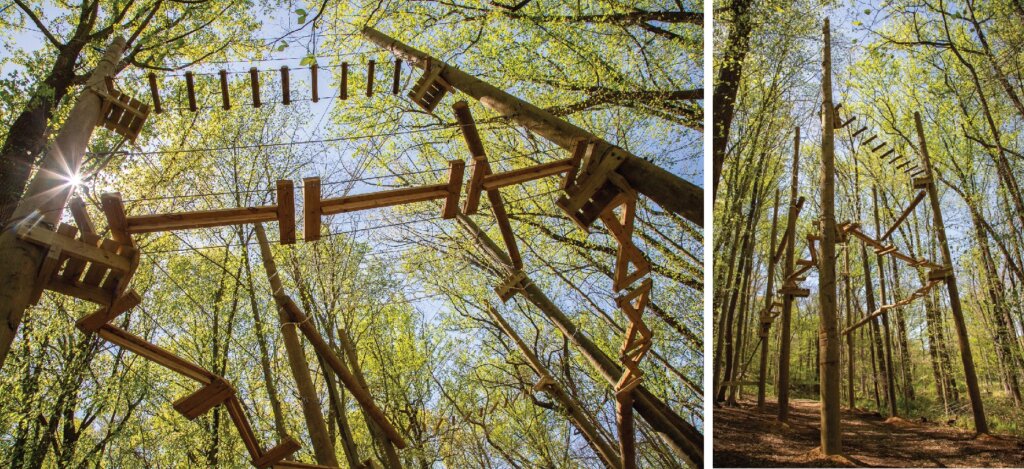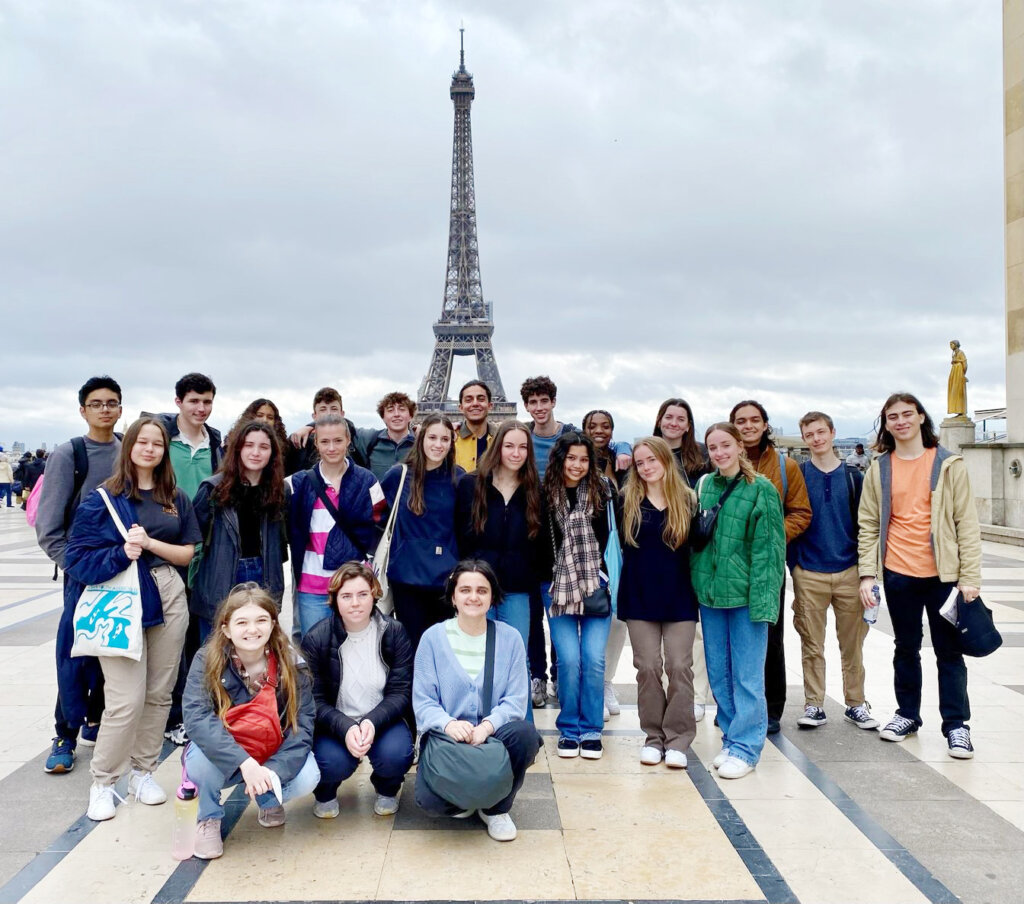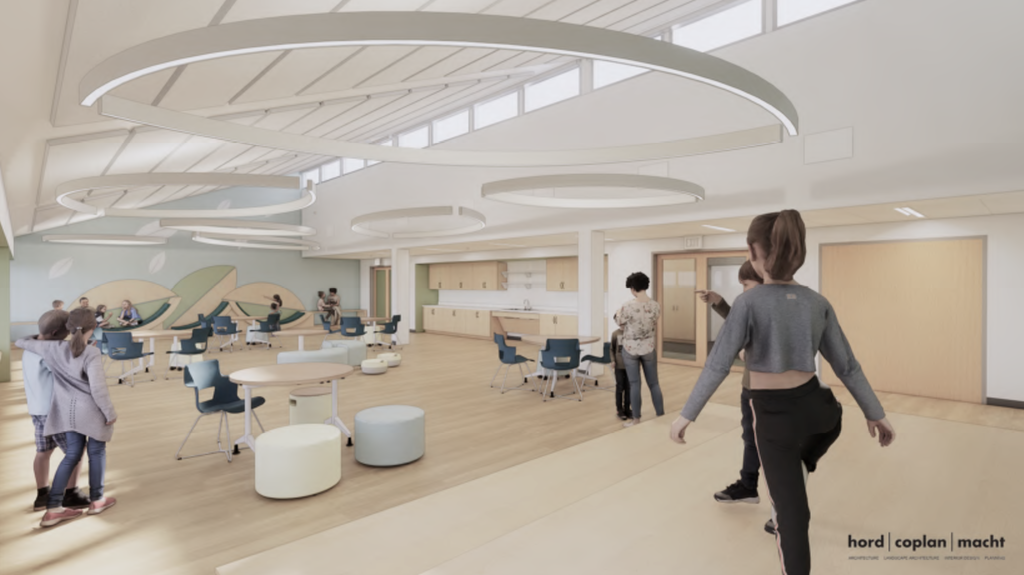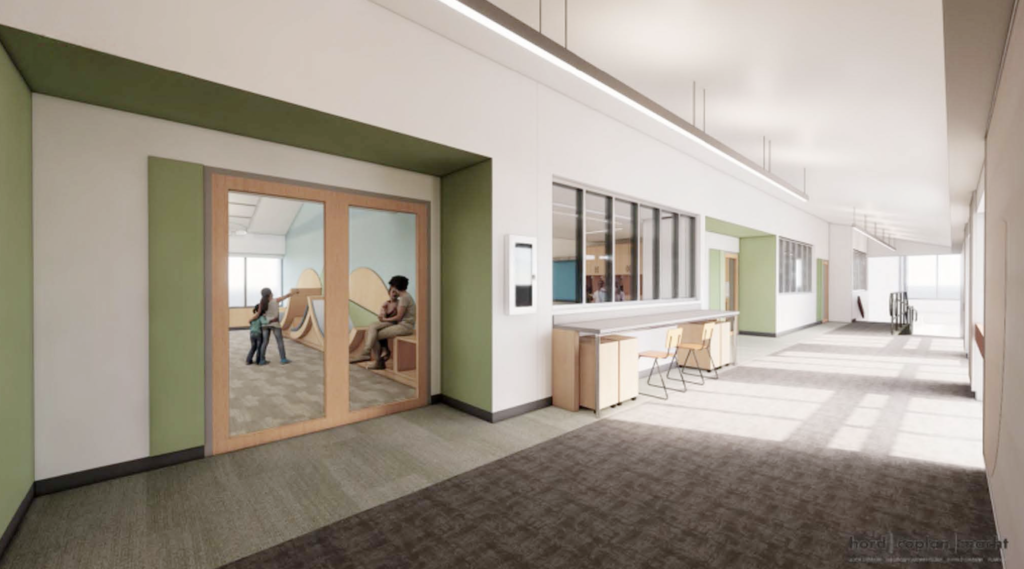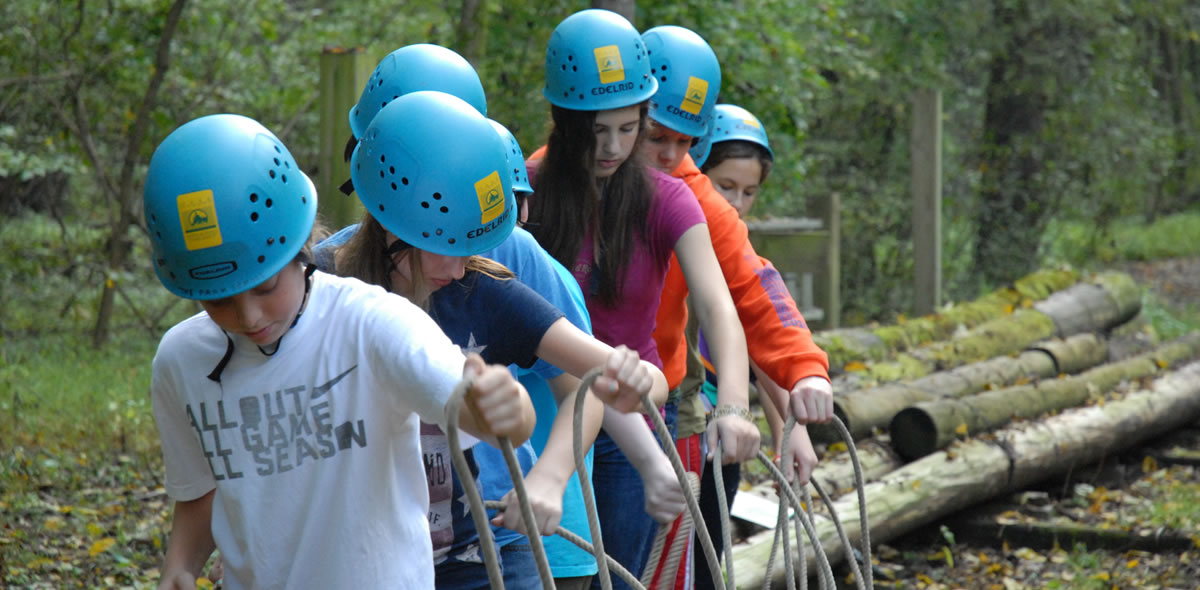Educating Mathematical Thinkers – Our Mathematics Program

Park’s Mathematicians at a Glance
Park’s curriculum produces independent, resourceful, and rigorous thinkers who succeed in mathematics.
- 99% have current seniors have elected to take four years of math.
- 21% of current seniors are enrolled in a post-calculus elective.
- 49% of freshmen, sophomores, and juniors who took the AP Calculus AB exam over the last ten years scored 5, the highest possible score.
- 65% of Park’s current senior class is currently studying or has studied calculus.
-
In 2019, Park placed first among schools in the Baltimore region in the Maryland Mathematics League competition. In the past 10 years, out of 40 schools statewide (plus D.C.), Park has consistently placed in the top 10.
The Approach
At Park, conceptual understanding and mastery of basic skills are linked, not separated. Students’ learning of standard mathematical procedures is grounded in an understanding of why and how these procedures work. From pre-kindergarten on, students learn strategies to solve problems rather than memorize formulas. The youngest children begin to look for patterns among numbers or in geometric forms. They visualize problems by making drawings, charts, or graphs. They work with manipulatives to understand essential number concepts. They learn to estimate to check on the reasonableness of their solutions. As students move into higher levels of mathematics, these strategies continue, but others are added: for example, taking ideas apart (breaking a large or complex problem into smaller parts or cases) or using inverse thinking (working backwards). In total, we term these strategies habits of mind. They are essential to mathematical thinking.
Students learn and practice habits of mind in a variety of ways, including direct instruction. However, most typically, students learn them through investigations (problems and projects), which they work on in small groups. This active approach to learning involves students in sharing ideas, trying out strategies, and working through problems to find accurate solutions.
The Content
Park covers the content common to traditional programs—and content beyond what those programs offer—but in a different sequence. Park’s program integrates different strands of mathematics rather than separating them (e.g., into the traditional Algebra and Geometry high school sequence). The aim is to create flexible thinkers who can draw on different aspects of mathematics in solving real world problems.
lower school
Students work on computational understanding and skills, ranging from whole numbers through fractions and decimals. They also have extensive exposure to geometric concepts, algebra, measurement, data analysis, and problem solving.
middle school
The program begins with an intensive focus on applications of fractions, decimals, and percents, and moves into concepts and interrelationships among arithmetic, geometry, algebra, probability, statistics, programming, trigonometry, and spreadsheets.
upper school
Traditional content of algebra, geometry, trigonometry, and pre-calculus is covered. Students then choose from an array of electives such as Calculus, Advanced Calculus, Statistics, or Discrete Mathematics. Other electives vary from year to year and may include Abstract Algebra, Linear Algebra, Mathematical Modeling, or Topology and Knot Theory.
Opportunities for Advanced Work
lower school
The emphasis on small group work provides flexibility to accommodate different paces and support higher levels of mastery. The Lower School learning resource teacher and faculty members provide specific targeted enrichment that leads to higher order problem solving and collaborative thinking. In addition, after-school clubs, such as Puzzles and Problem Solving, Destination Imagination, and First Lego League enable students to explore math concepts that further augment their classroom experiences.
middle school
Extensions provide opportunities for a faster pace or greater depth in exploring topics. Students are clustered by ability in sixth grade and grouped in seventh and eighth grades according to their facility with abstract concepts and demonstrated work habits. Extension work challenges students and varies the curriculum as needed to accommodate advanced students.
upper school
The program has the scope to take students as far as they can go. There is great flexibility in both the range of courses taught and students’ pace in moving through the program. Students are grouped by demonstrated interest and ability; those with particular talent and interest in mathematics cover the standard algebra/geometry/pre-calculus curriculum by the end of tenth grade. This sequence allows students to spend two years studying college-level calculus (Calculus and Advanced Calculus) before leaving high school. Students can carry their mathematics study further by taking advanced college-level courses such as Abstract Algebra, Linear Algebra, Mathematical Modeling, and Topology and Knot Theory.
The Outcomes of Park’s Program
The proof is in the numbers. Park students continue their study of mathematics to advanced levels and perform competitively on a variety of national and state assessments.
AP Calculus AB Test Results (college level course)
- 49% of freshmen, sophomores, and juniors from the last ten years who took the AP Calculus AB exam scored 5, the highest possible score.
- 94% scored 3 or higher (the College Board standard for college credit or advanced placement in college courses).
AP Calculus BC Test Results (upper level college course)
- 54% of students from the last ten years who took the AP Calculus BC exam scored 5, the highest possible score.
- 91% scored 3 or higher.
SAT Scores
- Over the last five years, the mean Mathematics SAT score has ranged from 634-654.
SAT Subject Exam Scores
SAT subject area tests measure mastery of content taught in mathematics programs.
- Over the last five years, the mean score for Park students on the Mathematics Level 2 exam (higher level exam) has ranged from 684-732.
Awards and Independent Study
- In 2019, two students presented separately at the Joint Mathematics Meetings, the flagship national conference for professional mathematicians. One student outlined her summer work at the St. Mary’s Research Experience for Undergraduates in “Combating Tuberculosis: Using Time-Dependent Sensitivity Analysis to Develop Strategies for Treatment and Prevention.” Another student’s research “Enchanting Geometry” detailed a little-known proof coming from the research for his “Euclid fan fiction” book of the same name.
- In 2017, a Park student qualified for the United States of America Mathematical Olympiad (USAMO), the exam to select students to represent the United States at the International Mathematical Olympiad. Three Park students qualified for the American Invitational Mathematical Exam (AIME), the feeder exam for the USAMO. Park students have continued to qualify for the AIME in subsequent years.
- In 2017, a Park student was an inaugural winner of the Spirit of Ramanujan Math Talent Initiative, a global search for undiscovered mathematical talent.
- In recent years, interested students have taken on a variety of independent study topics, including Symmetry and Shape, Group Theory, Analytic Number Theory, Real Analysis, Fourier Transforms, Rewriting Euclid “Elements,” and Game Theory.
Maryland Mathematics League Results
The Maryland Mathematics League sponsors statewide contests in which approximately 40 schools participate, including leading public and independent schools. The test evaluates mathematical competency and conceptual understanding at a high level. A number of schools coach students for this competition; Park does not.
- In 2019, Park placed first among independent schools in the Baltimore region.
- In the past 10 years, out of 40 schools statewide (plus D.C.), Park has placed in the top 10.
-
Students who have come through our Lower and Middle School math programs are consistently Park’s highest performers.
The Faculty
Teaching an ambitious mathematics program requires exceptional teachers. Consider the following:
- Average teaching experience of Park’s mathematics faculty is 21 years.
- All Park Middle and Upper School math teachers have substantial formal training in mathematics. Two have Ph.D.s, two have dual master’s degrees, and five others have master’s degrees or have done substantial graduate coursework.
- Minimum qualifications for an Upper School mathematics position include the ability to teach courses through Calculus and upper level college courses such as Abstract Algebra and Knot Theory. Only a fraction of candidates seeking mathematics positions meets this requirement; Park recruits nationally—and sometimes internationally—to find highly talented teachers.
- Most of Park’s mathematics faculty have department chair experience, including some who chaired two or more departments at other private schools before coming to Park.
- Math faculty have come to Park from leading independent schools and universities, including Isidore Newman (LA), Poly Prep (NY), Millbrook (NY), and St. Mary’s College of Maryland. Park’s faculty have taught the International Baccalaureate program and other international programs at schools in Brazil, Colombia, and Puerto Rico.
- Park teachers from all three divisions participate in professional activities.They have offered training workshops for teachers at other schools, been presenters at the National Association of Independent Schools conferences, the National Council of Teachers of Mathematics (NTCM) conferences, and the joint meetings of the American Mathematical Society/Mathematical Association of America; published in professional journals, served as readers for the AP Calculus Exam, attended the Park City Mathematics Institute, and contributed to the Open Up Resources Middle School and High School Mathematics Curricula.
Curricular Work: Developing a K-12 Program
Developing an outstanding mathematics program requires extensive professional development work by faculty. Park’s distinctive FACA (Faculty and Curricular Advancement) program has supported 17 intensive summer projects in mathematics. In addition, Park has supported training of Lower School teachers through multiple institutes and in-house workshops. Work has included the following:
- For Lower School, projects focused on number skills to delineate essential concepts and grade-to-grade progression
- For Middle School, creation of textbook supplements to reinforce algebraic concepts and skills, and curriculum for all grades
- For Upper School, writing an original series of texts now in use in the 9–11 grades
- Implementation of software (such as Desmos, Geogebra, and Mathematica) across the curriculum
- Development of tools to focus instruction on the habits of mind central to mathematical thinking
Summary
Park School has a coordinated Pre-K–12 mathematics curriculum. Opportunities for advanced work are provided in Lower, Middle, and Upper Schools. Inspired by an exceptional faculty, Park students enroll in upper level courses and achieve at high levels on standardized tests and in math competitions. Following graduation from Park, students are prepared and motivated to continue their study of mathematics in college and to pursue a variety of professions which require a strong mathematics background.



